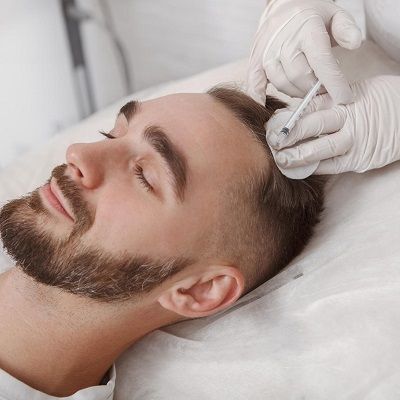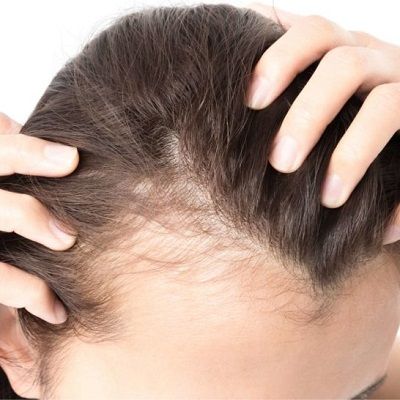Hair loss can be a distressing experience, and many individuals may not realize that certain medications can contribute to this issue. As more people seek effective solutions, understanding the link between medication and hair loss becomes crucial. In this article, we will explore various aspects of medication-related hair loss and highlight the Hair Loss Treatment Oman.

Understanding Medication-Induced Hair Loss
How Medications Affect Hair Growth
Medications can impact hair growth cycles in various ways, leading to conditions like telogen effluvium or androgenetic alopecia. Drugs can disrupt the hair follicle's normal functioning, resulting in increased shedding or slowed growth. Conditions such as stress, illness, or hormonal imbalances can exacerbate these effects, making it important to understand which medications are associated with hair loss.
Common Medications Linked to Hair Loss
Certain classes of medications have been identified as potential culprits for hair loss, including:
- Antidepressants: Some selective serotonin reuptake inhibitors (SSRIs) and tricyclic antidepressants have been associated with hair loss, particularly in sensitive individuals.
- Blood Thinners: Medications like warfarin can lead to hair thinning or loss by affecting the body's ability to transport oxygen and nutrients to hair follicles.
- Hormonal Medications: Birth control pills and hormone replacement therapy can impact hair growth, especially during adjustments to dosage or formulation.
- Chemotherapy Drugs: These powerful medications target rapidly dividing cells, including those in hair follicles, often resulting in significant hair loss.
Signs and Symptoms of Medication-Related Hair Loss
Recognizing medication-induced hair loss can be challenging. Look out for the following signs:
- Increased Shedding: Noticing more hair in your brush or on your pillow can be an indicator.
- Thinning Hair: If your hair appears less dense or the scalp is more visible, this could signify an issue.
- Uneven Hair Growth: Patches of hair loss or irregular hairlines may develop as a result of specific medications.
Seeking Solutions: Best Hair Loss Treatment in Oman
Consultation with a Specialist
If you suspect that your hair loss is related to medication, consulting a healthcare provider or dermatologist is essential. They can help determine the cause and recommend appropriate treatments. In Oman, professionals specialize in assessing hair loss and developing tailored treatment plans.
Topical Treatments
Several topical treatments are available that may help combat hair loss. Common options include:
- Minoxidil: This over-the-counter solution can stimulate hair growth and is widely used for androgenetic alopecia.
- Natural Oils: Essential oils, such as rosemary or peppermint, have been suggested to promote hair growth and improve scalp health.
Oral Medications
In some cases, healthcare providers may prescribe oral medications that promote hair growth. Options may include:
- Finasteride: Often prescribed for men, finasteride can help reduce hair loss by inhibiting the hormone responsible for thinning.
- Spironolactone: This medication is sometimes used off-label for women experiencing hair loss due to hormonal imbalances.
Hair Restoration Procedures
For individuals seeking more immediate results, hair restoration procedures may be an option:
- Hair Transplant Surgery: This surgical procedure involves relocating hair follicles from a donor site to areas of thinning or balding.
- PRP Therapy: Platelet-rich plasma therapy uses the body's own growth factors to stimulate hair follicles, promoting regrowth.
Lifestyle Changes to Mitigate Hair Loss
Nutrition and Diet
A balanced diet rich in vitamins and minerals is crucial for maintaining healthy hair. Key nutrients include:
- Biotin: Found in eggs, nuts, and whole grains, biotin supports hair health.
- Zinc: This mineral is essential for tissue growth and repair, aiding in hair follicle health.
- Iron: Low iron levels can lead to hair loss, so consuming iron-rich foods like leafy greens and legumes is vital.
Stress Management Techniques
Stress can exacerbate hair loss, so incorporating stress-reduction techniques into your routine is beneficial. Consider:
- Yoga and Meditation: These practices can help reduce stress and promote overall well-being.
- Regular Exercise: Physical activity improves blood circulation, which can positively affect hair growth.
Understanding the Timeline for Hair Regrowth
What to Expect After Discontinuing Medication
If hair loss is indeed linked to a specific medication, you may notice changes after discontinuing use. However, it’s essential to remember that hair regrowth takes time. Depending on the individual and the medication, it may take several months to see noticeable improvements.
Patience and Persistence
Maintaining a positive attitude is crucial during the regrowth process. Utilizing the best hair loss treatment in Oman and adhering to a consistent hair care regimen can significantly improve outcomes.
When to Seek Professional Help
Persistent Hair Loss Concerns
If hair loss persists despite implementing lifestyle changes and utilizing treatments, seeking professional help is essential. Dermatologists can perform scalp evaluations, blood tests, and biopsies to identify underlying causes and recommend appropriate interventions.
Emotional Support and Resources
Experiencing hair loss can impact self-esteem and mental health. Consider joining support groups or seeking counseling to discuss feelings and experiences related to hair loss.
Conclusion
Hair loss can be a side effect of medications, but understanding the connections can empower individuals to seek effective solutions. Consulting healthcare professionals, exploring treatment options, and making lifestyle adjustments can help mitigate the effects of medication-related hair loss. By exploring the best hair loss treatment in Oman, you can take proactive steps towards regaining your confidence and achieving healthier hair.
